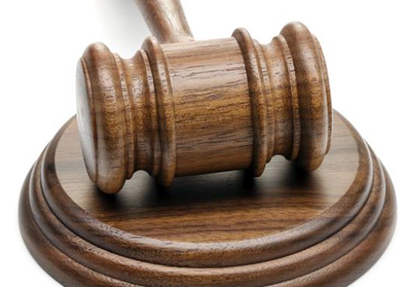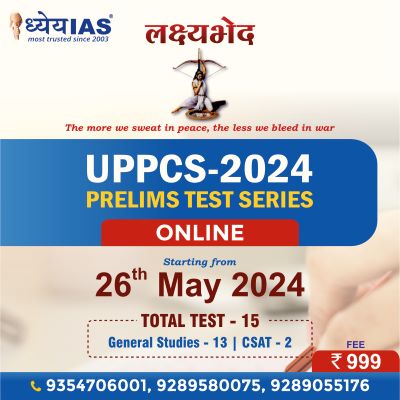Relevance: GS-2: Functions and Responsibilities of the Union; Structure, Organisation and Functioning of the Executive and the Judiciary
Key Phrases: anachronistic and offensive; Section 375, 376 of Indian Penal Code; Right to Equality; Outraging Woman's modesty
Why in News?
- Recently, Justice M. Nagaprasanna of the Karnataka High Court upheld the session’s court judgement of treating Marital Rape as a crime and not an exception to Article 375.
Section 375 and Marital Rape
- Section 375 of IPC (Indian Penal Code) defines rape whereas Section 376 punishes the said person who has committed rape.
- Section 375 protects the bodily integrity of women and is a shield against patriarchy and safeguards rights of women.
- But, an exception exists to Section 375 in case the act of rape has been committed by a husband and the wife is of 18 years and above age.
- Arguments for defence of this exceptio:
- Difficulty in proving the accusation in court of law
- Marriage as an institution will be affected
- Conversion of cases of Domestic Violence to that of Section 375
Key Highlights
- Hrishikesh Sahoo vs State of Karnataka
- The woman had filed a criminal complaint of rape against her husband due to the repeated acts of sexual assault she had to face.
- The police registered her complaint under Section 376 notwithstanding the marital rape exception,
- The Sessions Judge took cognisance and framed charges under Section 376.
- The husband filed an application to drop the charge of Section 376 but the Sessions Judge rejected it.
- This led to the husband approaching the High Court seeking to quash the criminal proceedings.
The Rationale
- Exception to Article 375 is against women’s right to equality
- Justice Nagaprasanna held that if a man, being a husband is exempted for his acts of sexual assault, it would destroy women’s right to equality, which is the very soul of the Constitution.
- The Constitution recognises and grants equal status to women and hence the wife can’t be treated as subordinate to the husband.
- Marriage as an association of equals
- It does not in any sense depict women to be subordinate to men
- Against various fundamental rights
- The constitution guarantees women the fundamental rights under
Articles 14, 15, 19 and 21
- The right to live with dignity,
- Personal liberty,
- Bodily integrity,
- Sexual autonomy,
- Right to reproductive choices,
- Right to privacy,
- Right to freedom of speech and expression.
- The constitution guarantees women the fundamental rights under
Articles 14, 15, 19 and 21
- Exemption can’t become licence of commission of crime
- In provocative words he stated, “a man is a man; an act is an act; rape is a rape, be it performed by a man the “husband” on the woman “wife”, and refused to quash the case.
Earlier Judgments
- Independent Thought vs Union of India (2017),
- The Supreme Court of India diluted it and removed the exception to marital rape to a wife not below 15 years and made it 18 years.
- The Court stated that this would not amount to removing the exception to marital rape for women above 18 years as that was not the case before it, but Justice Madan B. Lokur in similar words held, “... a rape is a rape.
- Legislation or lack of it can’t wash away a crime
- The Court held that:
- A girl cannot be treated as a commodity having no say over her body or someone who has no right to deny sexual intercourse to her husband
- The human rights of a girl child are very much alive whether she is married or not.
Roots of the Principle of Exception
- It is derived from the dictum by Chief Justice Matthew Hale of Britain in 1736 where he stated due to mutual matrimonial consent and contract, the wife can’t accuse the husband of violating a right which she has herself given to him:
- By marriage, a woman gave up her body to the husband due to which a husband could not be guilty of raping his wife. This was accepted as a concept and was translated into criminal codes, including the Indian Penal Code which India adopted.
Way Forward
- This principle has now been completely abolished.
- In the United Kingdom, in 1991, the exception to marital rape was
done away with in the case of R v R (Rape: marital exemption) [1991]
- The House of Lords held that the common law rule must change as per the changes in society.
- The court held that a husband’s immunity no longer exists and took the view that the time had arrived when the law should declare that a rapist remains a rapist subject to the criminal law, irrespective of his relationship with his victim.
- It held that it was the duty of the court to remove a common law fiction which had become anachronistic and offensive and that there was no justification for the marital exemption in rape.
- In the United Kingdom, in 1991, the exception to marital rape was
done away with in the case of R v R (Rape: marital exemption) [1991]
Conclusion
- Section 375 is regressive, wherein a woman is treated as a subordinate to the husband and against the constitutional guarantee of equality. This judgement must guide the broader change in removing the exception to Section 375 and Marital Rape must be treated as a crime.
Source: The Hindu
Mains Question:
Q. Explain the provision regarding Marital rape and Section 375? Suggest the challenges in accepting it as a crime and give a suitable way forward.



















